In Through the Out Door – 092722
This is a newsletter by Christian Sager that comes out every other Tuesday. In it I attempt to make sense of the sensory chaos I experienced in the world. I try to sort that information along the model of Maslow's Hierarchy of Needs. This issue I write about a medical procedure I had, the terrible economic/housing market, a reflection on my unpaid emotional labor, my three day vacation to Astoria, Oregon, and the most popular thing I've ever written.

Physiological
I'm not as poetic a writer as I'd like to be. So I couldn't think of a creative manner to convey to you that I had a colonoscopy/upper endoscopy last week. Every literary device I considered using seemed like it would end in unnecessary scatological humor. Instead, I'm going to deliver it to you the same way the nurse did to me when she asked me to "describe my last bowel movement" — straight as an arrow.
Everyone should get these procedures done. They could save your life. But I feel a responsibility to let you know what they're actually like, because people will rarely tell you. This is my third time getting one of these procedures. Every single time they've been unpleasant.
Everyone who has been through one will tell you, "The procedure is fine, it's the prep that's awful."
That's certainly true. But given the industrialized factory of American gastroenterology, the procedure itself is awkward in a way that will make you feel like your well being isn't exactly the priority at hand. And let's be honest... almost anything is "better" when compared to starving yourself for 3 days before swallowing a poison that forcibly evacuates every millimeter of your intestines.
When you leave the clinic — still so doped up on anesthetic that they recommend you don't sign any legal documents for twenty-four hours — they'll hand you a report. It says things you won't understand, like, "Z-line was irregular at 41 cm." Also included in it are photographs of what your insides look like, top-to-bottom. I'll spare you by not sharing mine here, but suffice to say, I now know what actually inspired H.R. Geiger's designs in Alien.
Fortunately, my results were unremarkable, pending pathology results on some standard biopsies. The good news is Kelly made my favorite meal when we got home: Mashed potatoes, mac n' cheese, rice pilaf and Daring lemon herb vegan chicken. She calls it the "beige plate special."
Also, I cannot recommend highly enough the intravenous hydration therapy they give you before the procedure. I drink water constantly, but that stuff made me feel like a million bucks. Instead of fancy bottled water, we should be able to pop into a little kiosk and pay five bucks for little bespoke saline drip injection.
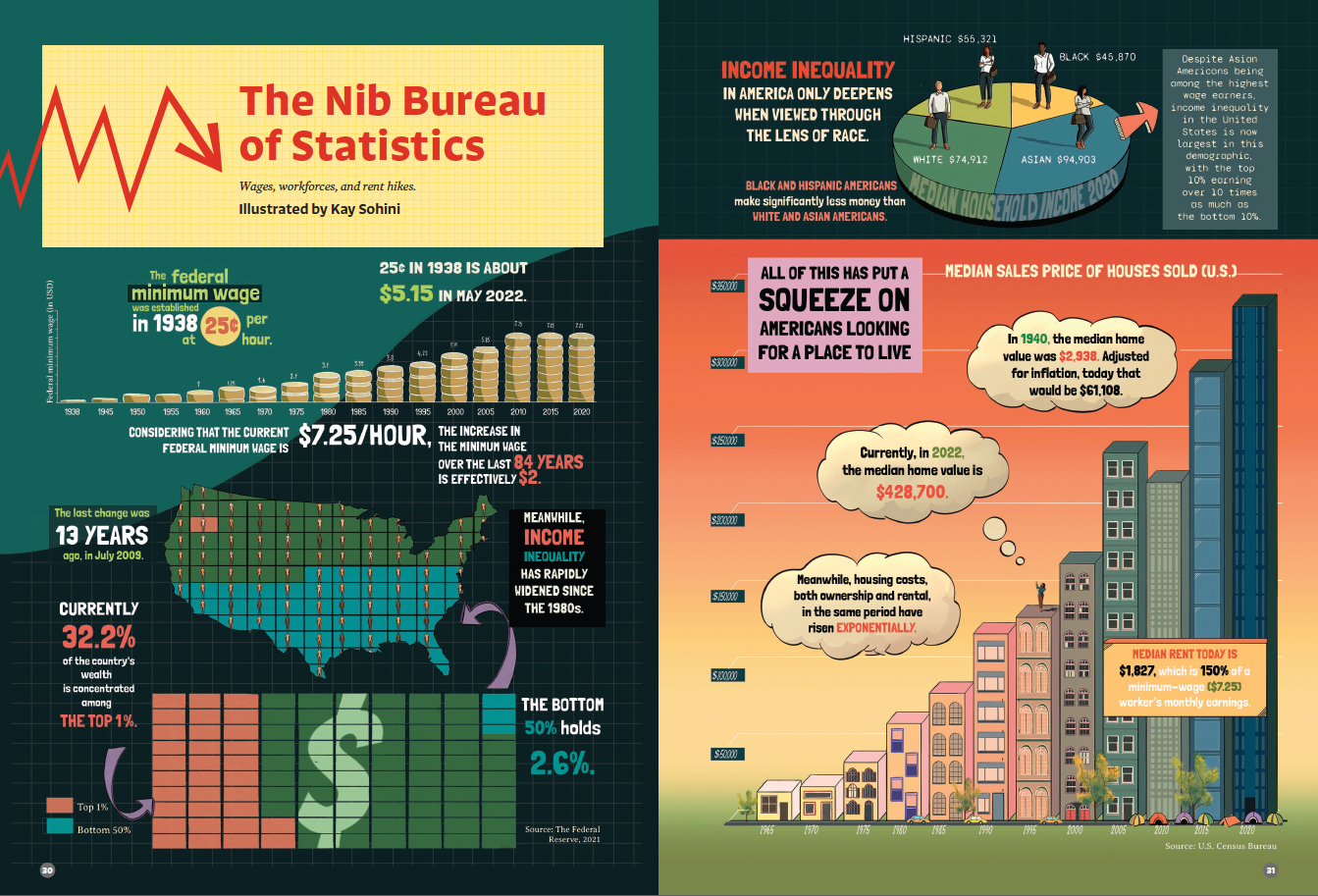
Security
The recent "Work" issue of The Nib arrived. If you don't already follow their daily emails, I recommend it. I've been supporting them for a little over a year by subscribing to the quarterly paper edition. While reading through the latest issue I was especially struck by the above statistics spread composed by Kay Sohini.
Having just bought a modest home myself, Sohini's infographic on the right — depicting the median sales of houses sold in the United States — was especially resonant. Just in the span of time I've been an adult, the cost to buy a home has gone up at least 285%. That probably explains why it took until my mid-forties to even consider buying a home.
For many people, their day job fulfills their need for security by paying them a salary. That allows them to buy things like food and shelter to survive.
I wish I could be like that. But because my brain is different, it doesn’t just end there for me. I often end up absorbing the stress around me from the internal politics of the organizations I work for. In some cases, that has led to me attempting to fulfill my needs for belonging, esteem, and creativity in an organizational infrastructure that isn’t designed to support them.
I am not compensated when I take on this emotional work. The organization doesn’t pay me more for it. And it can’t give back in those other, meaningful ways. So I’m doing it for free.
I recently asked for a promotion from my current role, because I’m taking on too much that’s outside the scope of what I was hired to do. My contributions were recognized verbally, but the organization doesn’t have the funds to raise my salary. When I told my boss that I would have to scale back to the confines of my originally hired role, he chuckled, because everyone at our organization (including him) is asked to do more with less.
Because of my nature, I’m still taking on the burden of work that should belong to someone far higher up than I am in the hierarchy. This was quite difficult a week ago, when the organization tried to consolidate three units into one. For the entire week there were meetings filled with anger, fear, gloom, and anxiety, as we tried to understand what this meant.
Ultimately, the consolidation was scrapped. But the future for the organization is still uncertain. Something has to give for it to continue to function. Whatever that is, will probably be even less pleasant than the consolidation just staved off.
I know the term “quiet quitting” has been making the rounds for a few weeks now. Regardless of its rhetorical usage, that’s not what I intend to do. Even when I’m burnt out I can’t help but put forth more than the bare minimum required of me. But I still need to take precautions, so I’m not shouldering the burden of every crisis this organization goes through.
A more proactive use of my time might be to use the experience as inspiration for my storytelling. Maybe you’ll see some of this appear in my fiction in the coming years, I don’t know. But it seems to me that eventually people will lose their jobs, change will occur, and no one will be happy about it.
I took a yoga class recently where the instructor said something that reminded me of this organization in entropy:
“Change comes with discomfort, but it shouldn’t require pain.”
I hope someone — much higher up the ladder than I am — keeps that in mind over the coming months. This won’t be comfortable. But it doesn’t have to be painful either.
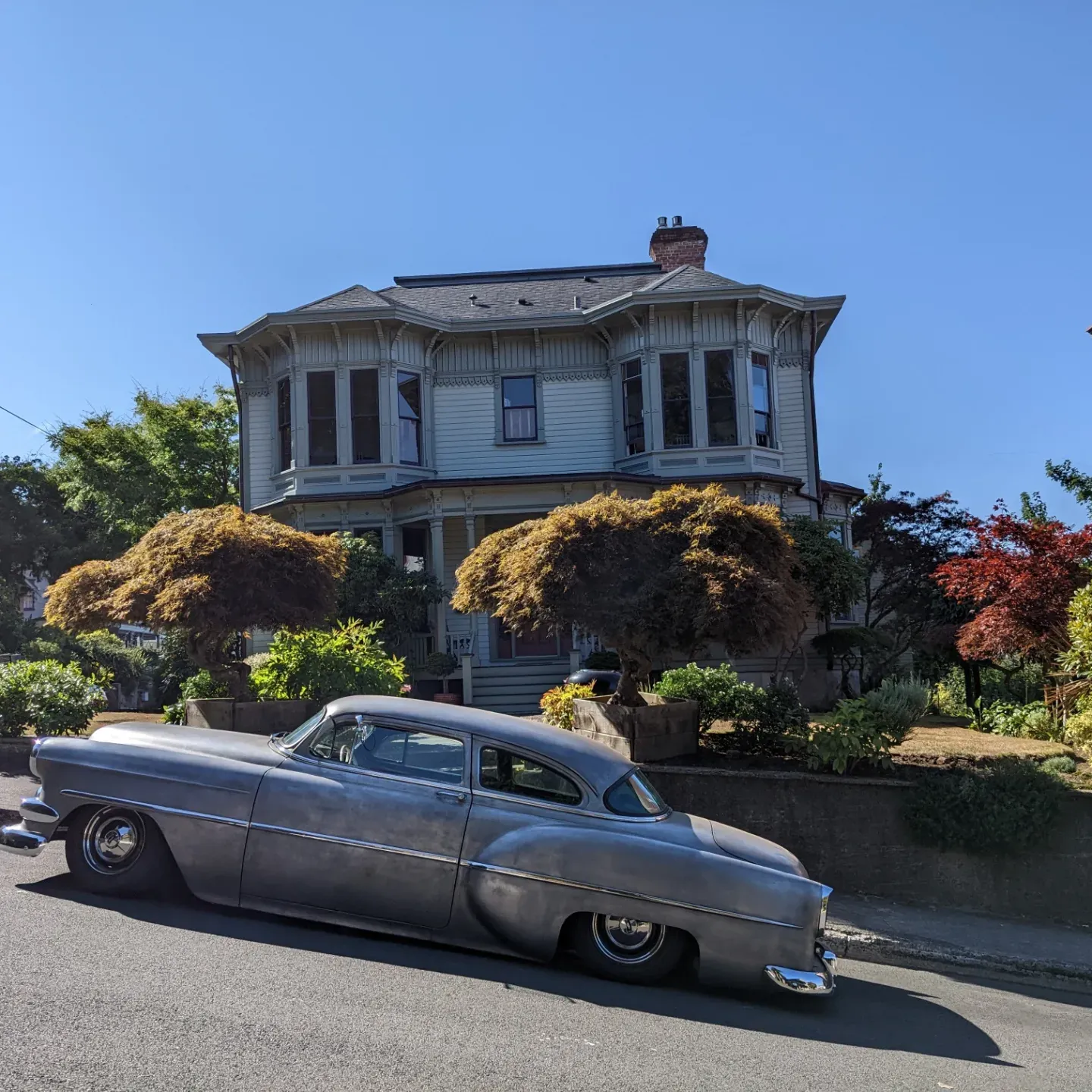
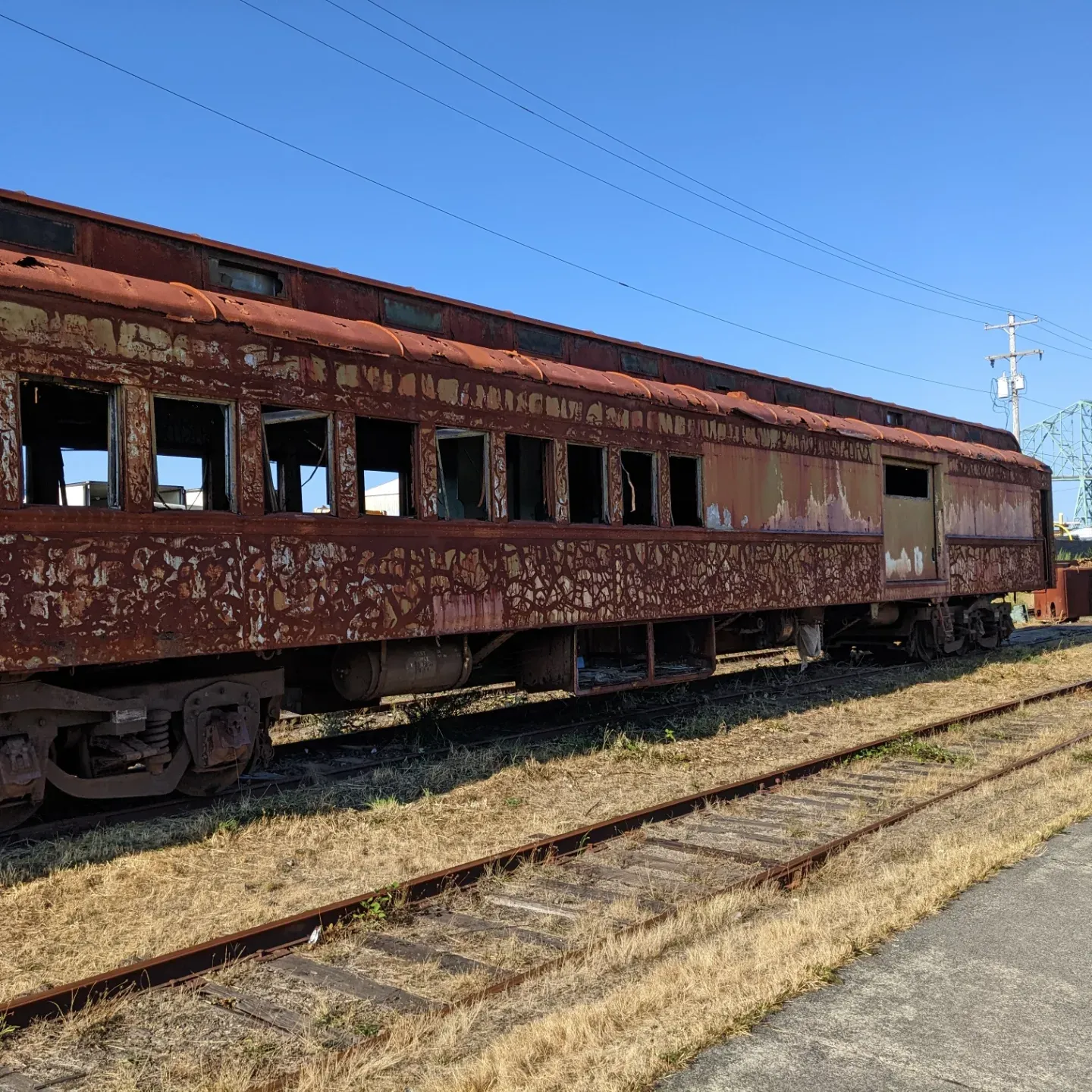

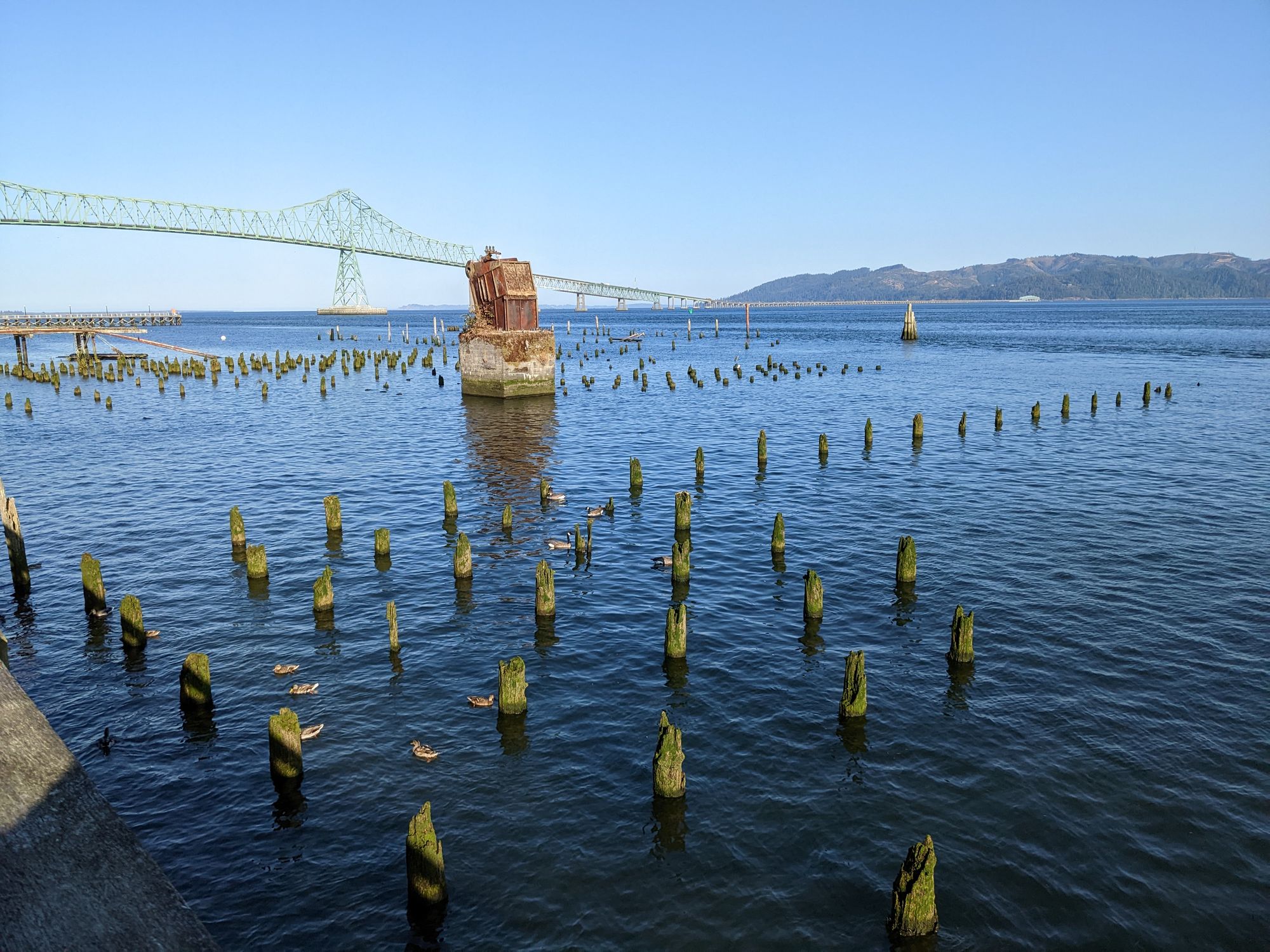
Belonging
I haven’t taken a solo vacation since before the pandemic, so I recently scheduled three days for myself on the coast in nearby Astoria, Oregon. I took the bus out there, riding along the Columbia River to the ocean. The place I stayed in is a historic building called “Fisher House.” I made camp inside its 120 year old former garage, now a converted loft. Fisher House lies at the top of 12th, with a beautiful view of the Columbia and adjacent Washington state. It was exactly the kind of place I like to stay: no frills, just a bed, bathroom and kitchenette.
My idea of a perfect vacation is to go someplace unexplored and alternate between reading, napping, watching bad horror movies and discovering weird old shops lining the periphery of tourist traps. I usually buy books; in this case I found two by horror masters Peter Straub and Junji Ito. Astoria doesn’t have much in the way of records, so I spent an afternoon in Video Horizons, an old movie rental store where everything’s for sale.
One afternoon I rented a bike and rode along the waterfront until I reached the 36th Ave pier, where over a hundred sea lions sun themselves on the wreckage of this town’s lost livelihood.
It was a remarkable thing to witness these creatures so close to human activity, without a care for our proximity. They just bark and sun themselves, occasionally dropping into the water to cool off and then hopping back up and vie for a good spot on the rotten old wood. Later on my trip I was able to get up close to a separate group of sea lions, down by the 10th street docks. Above is a video of my time with them.
Another afternoon I returned to the garage to find two deer – a doe and her daughter – not twenty feet from my door. They didn’t seem the least bothered by my presence and slowly cantered away down the dirt driveway of a Christian Science reading room, back into the tree covered hills.

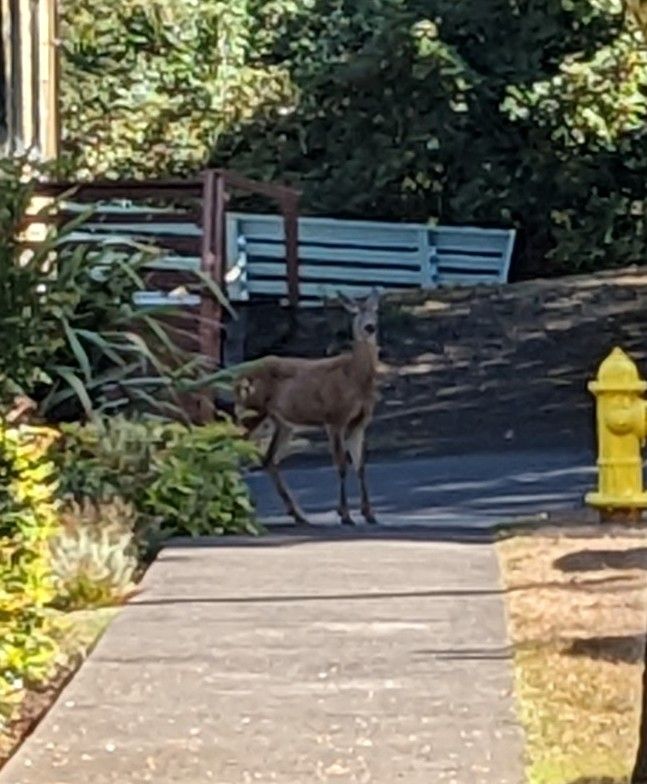
Most of us probably know Astoria as the setting for The Goonies. Between that and its storybook Victorian architecture, there’s a constant sense of nostalgia to the place. It reminds me of seacoast tourist towns back east, like Portsmouth, New Hampshire or Portland, Maine. It even has a peppering of counterculture like those locations, with its own punk scene, dive bars and gritty atmosphere.
What’s most striking about Astoria is its pervasive mood of collapse. It is a town just barely holding on, having switched gears since its founding as a port for fur trading, fishing and canning. Now it's become a historic tourist trap littered with art galleries and cannabis dispensaries. Its boom has long since past, but within a 4 block radius there’s something for everyone to buy, from the stream of incoming cruise ship guests to the weirdos like me, wandering around, looking for cheese, sugar and spooky books.
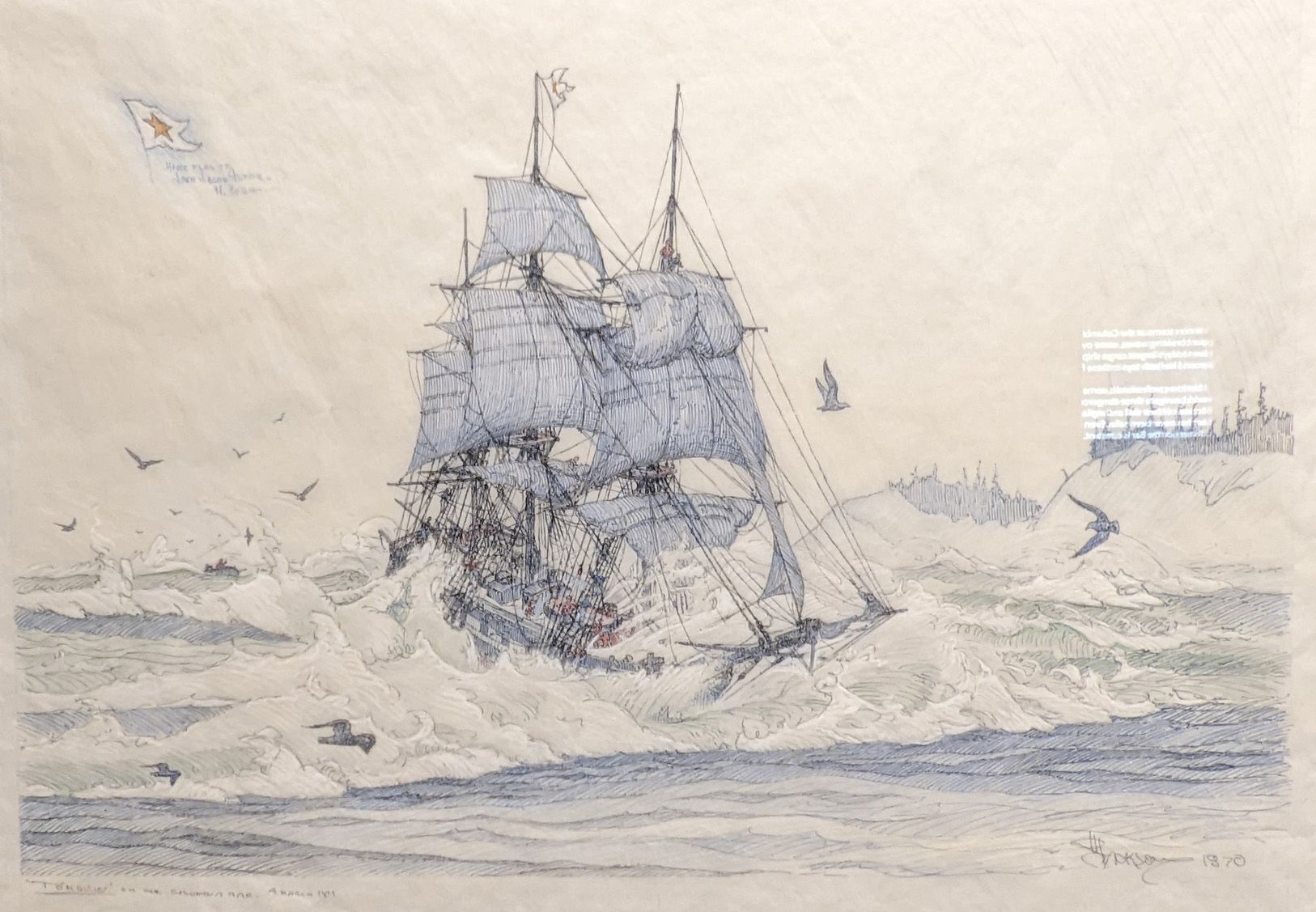
I don’t think it’s an accident that Astoria’s main attraction is a museum dedicated to shipwrecks. Centuries of sailors have crashed and died here, all in the pursuit of the economic gains that once made this town a shipping hub for the Pacific Ocean. Today, half the town lies within a tsunami danger zone; just one serious earthquake away from all of it getting washed away.
It’s the kind of place that makes me want to hunker down and write a novel. Which isn’t all that surprising considering its resemblance to the settings of the Stephen King tales I grew up reading, inspired themselves by the New England sea towns I grew up living near. And like those King locales, Astoria is an illusion of the American Dream. Its status quo is under threat, just one protagonist away from banishing the hidden evil at its core.
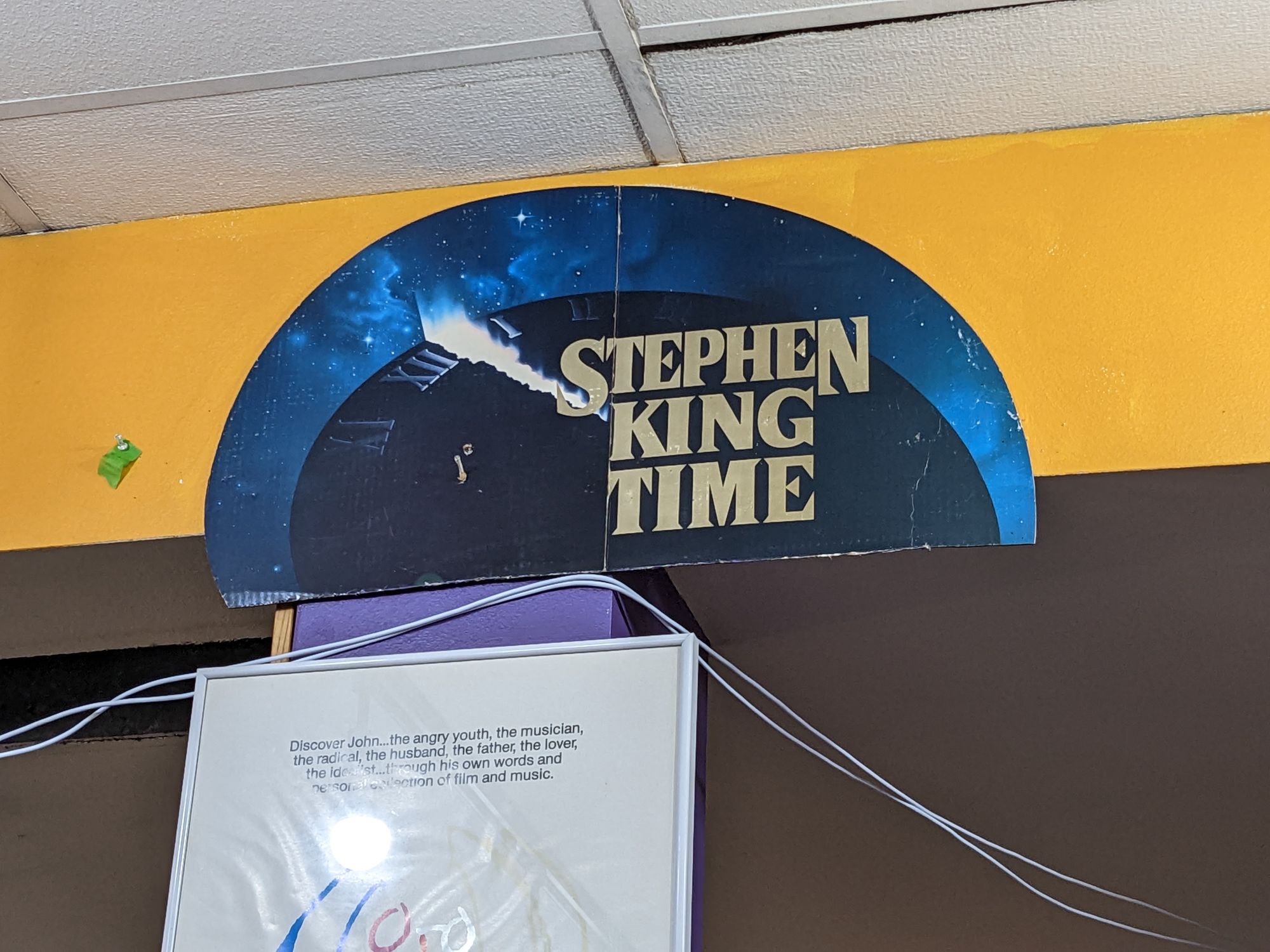
In Tim Waggoner's Writing in the Dark, John Langan calls this trope the "The King Pattern," the most common plot for horror novels during the paperback boom of the 1980s. According to Langan:
This is a pattern where “a story has a large cast of characters drawn from different socioeconomic strata, and which occurs in a naturalistic setting rendered mimetically, and which concerns a growing supernatural threat to the established social order, and which concludes with the threat vanquished and the social order reaffirmed.”
Sounds like Astoria. I can't tell if I want to retire here or flee from it and never return.
Esteem
The most widely read thing I’ve ever written is this joke tweet I published on a whim, mashing up Arrested Development with Halloween.
I keep thinking about how much better those new HALLOWEEN movies would be if they ended with Judy Greer yelling, "Say goodbye to these Michael!" pic.twitter.com/ypOIqNKJkE
— Christian Sager (@christiansager) September 18, 2022
As of this writing, over 4,370 people have liked it and over 170,000 people have read it. Further evidence that social media is a strange beast, attracted to both the familiar and the ephemeral.
Self-Fulfillment
Between work stress, vacation and medical procedures, I haven't had a lot of time for creativity like writing (beyond what you're reading here). But I've been reading a lot, including Frank Herbert's Dune Messiah and Black Metal Rainbows, a collection of essays about the music genre and how to take it beyond its roots in violence and white supremacy, to build something more radical and inclusive.
Resilient Gratitude
- Sea lions
- Solitude
- Intravenous fluids

